25 Books You Can't Put Down
Go on, take what you need. A perfect mystery, a mouthful of poetry...;O serves up a smorgasbord of the summer's best reads.
By Cathleen Medwick
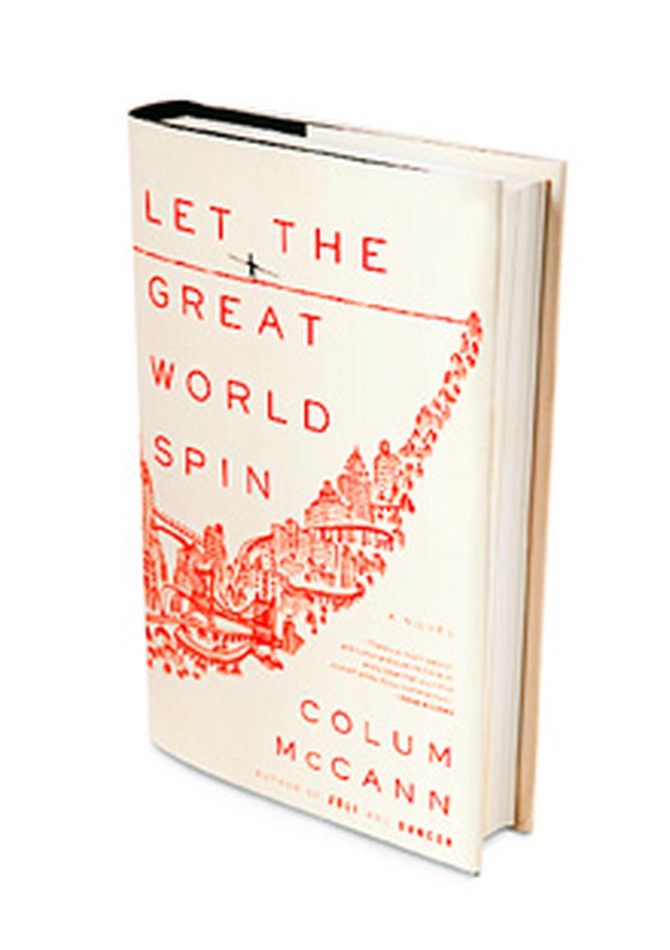
Let the Great World Spin by Colum McCann
368 pages; Random House
It's 1974, and a man is dancing on a tightrope between the towers of the World Trade Center—risky business, but as Colum McCann reveals in Let the Great World Spin (Random House), so is simply living day to day. This novel, with its web of disparate but connected characters—including a God-battered Irish monk, a swashbuckling prostitute, an artist with a guilty secret, a mother grieving her war dead—is an act of pure bravado, dizzying proof that to keep your balance you need to know how to fall.
First chapter: Read an excerpt from Let the Great World Spin
Reader's Guide: Get questions for discussion for your book club
It's 1974, and a man is dancing on a tightrope between the towers of the World Trade Center—risky business, but as Colum McCann reveals in Let the Great World Spin (Random House), so is simply living day to day. This novel, with its web of disparate but connected characters—including a God-battered Irish monk, a swashbuckling prostitute, an artist with a guilty secret, a mother grieving her war dead—is an act of pure bravado, dizzying proof that to keep your balance you need to know how to fall.
First chapter: Read an excerpt from Let the Great World Spin
Reader's Guide: Get questions for discussion for your book club
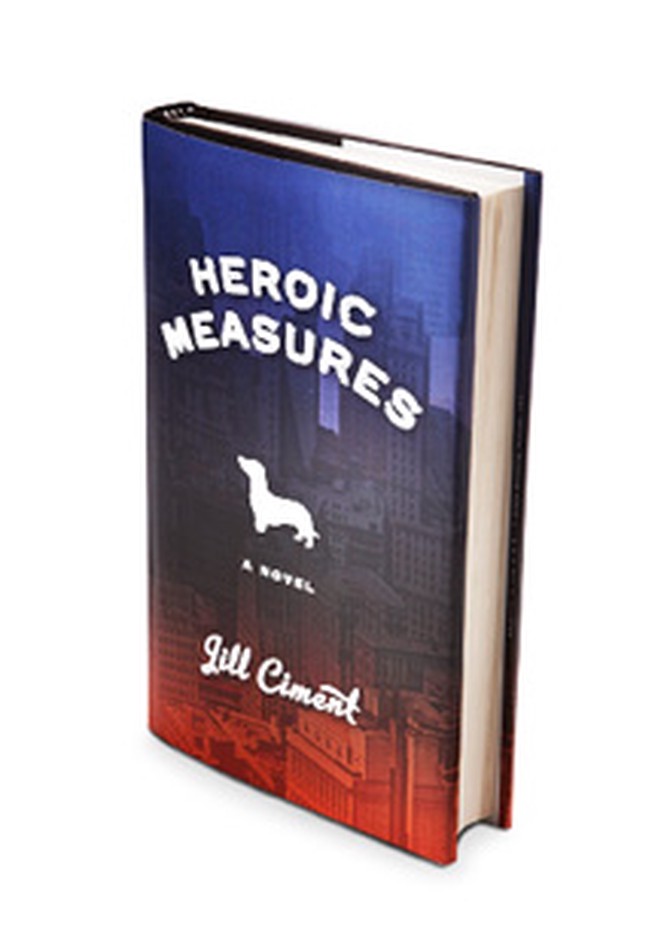
Heroic Measures by Jill Ciment
208 pages; Pantheon
After a lifetime together, 70-something Alex and his wife, Ruth, are still smitten—with each other ("He has loved her for so long that he can no longer distinguish between passion and familiarity") and with their elderly dachshund, Dorothy. About to sell their Manhattan walk-up, the couple is caught up in crisis: Their dog is suddenly paralyzed, a truck jackknifes in a tunnel, news channels click into terrorist-hype overdrive. Read Jill Ciment's Heroic Measures (Pantheon) for its painterly depictions of a rattled city, its deliciously biting satire of media and real estate madness, its tender knowledge of the creaturely ties that bind.
Q&A: Read a conversation with Jill Ciment
First chapter: Read an excerpt from Heroic Measures
After a lifetime together, 70-something Alex and his wife, Ruth, are still smitten—with each other ("He has loved her for so long that he can no longer distinguish between passion and familiarity") and with their elderly dachshund, Dorothy. About to sell their Manhattan walk-up, the couple is caught up in crisis: Their dog is suddenly paralyzed, a truck jackknifes in a tunnel, news channels click into terrorist-hype overdrive. Read Jill Ciment's Heroic Measures (Pantheon) for its painterly depictions of a rattled city, its deliciously biting satire of media and real estate madness, its tender knowledge of the creaturely ties that bind.
Q&A: Read a conversation with Jill Ciment
First chapter: Read an excerpt from Heroic Measures
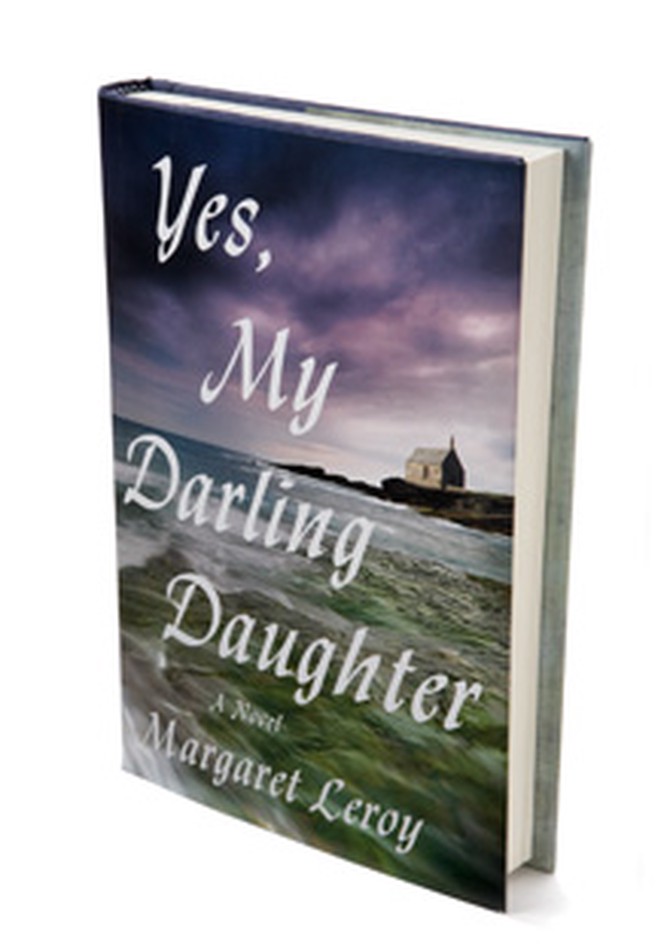
Yes, My Darling Daughter by Margaret Leroy
352 pages; Sarah Crichton/Farrar, Straus and Giroux
Margaret Leroy's eerily lovely novel Yes, My Darling Daughter (Sarah Crichton/Farrar, Straus and Giroux) is one of those rare books you'll sit with till your bones ache. The mystery of why 4-year-old Sylvie longs to return to a house she has never seen, a family she cannot have known, takes this peculiar child, her anxious single mother, and a romantically scruffy psychologist onto the windswept beaches of a tiny coastal Irish village—a setting as enchantingly perilous as childhood itself.
Q&A: Read a conversation with Margaret LeRoy
First chapter: Read an excerpt from Yes, My Darling Daughter
Margaret Leroy's eerily lovely novel Yes, My Darling Daughter (Sarah Crichton/Farrar, Straus and Giroux) is one of those rare books you'll sit with till your bones ache. The mystery of why 4-year-old Sylvie longs to return to a house she has never seen, a family she cannot have known, takes this peculiar child, her anxious single mother, and a romantically scruffy psychologist onto the windswept beaches of a tiny coastal Irish village—a setting as enchantingly perilous as childhood itself.
Q&A: Read a conversation with Margaret LeRoy
First chapter: Read an excerpt from Yes, My Darling Daughter
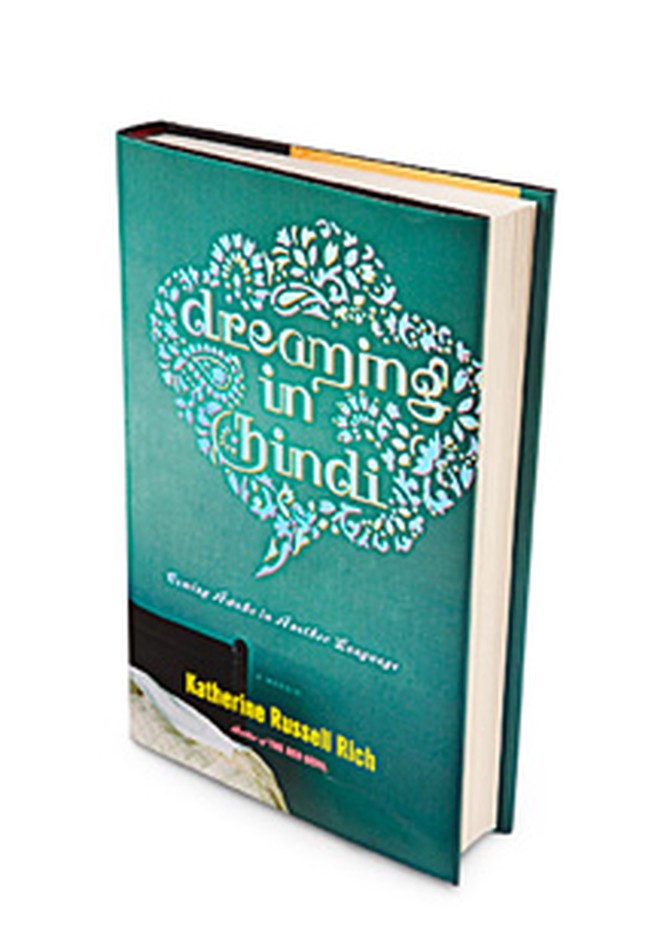
Dreaming in Hindi by Katherine Russell Rich
384 pages; Houghton Mifflin
In a lionhearted attempt to shed her past—years of numbing jobs at glossy magazines and two life-threatening bouts with cancer—Katherine Russell Rich voyaged to India to learn Hindi, a language with one word, kal, for "yesterday" and "tomorrow." Fortified with neuroscience and laced with humor ("A lover who speaks the language is a faster route to fluency than any tapes or courses, but perhaps more expensive"), Dreaming in Hindi (Houghton Mifflin Harcourt) is a crash course in emotional agility, in an understanding too deep for words.
This is one of O's top 10 books of 2009. See the complete list of terrific reads here.
First chapter: Read an excerpt from Dreaming in Hindi
In a lionhearted attempt to shed her past—years of numbing jobs at glossy magazines and two life-threatening bouts with cancer—Katherine Russell Rich voyaged to India to learn Hindi, a language with one word, kal, for "yesterday" and "tomorrow." Fortified with neuroscience and laced with humor ("A lover who speaks the language is a faster route to fluency than any tapes or courses, but perhaps more expensive"), Dreaming in Hindi (Houghton Mifflin Harcourt) is a crash course in emotional agility, in an understanding too deep for words.
This is one of O's top 10 books of 2009. See the complete list of terrific reads here.
First chapter: Read an excerpt from Dreaming in Hindi
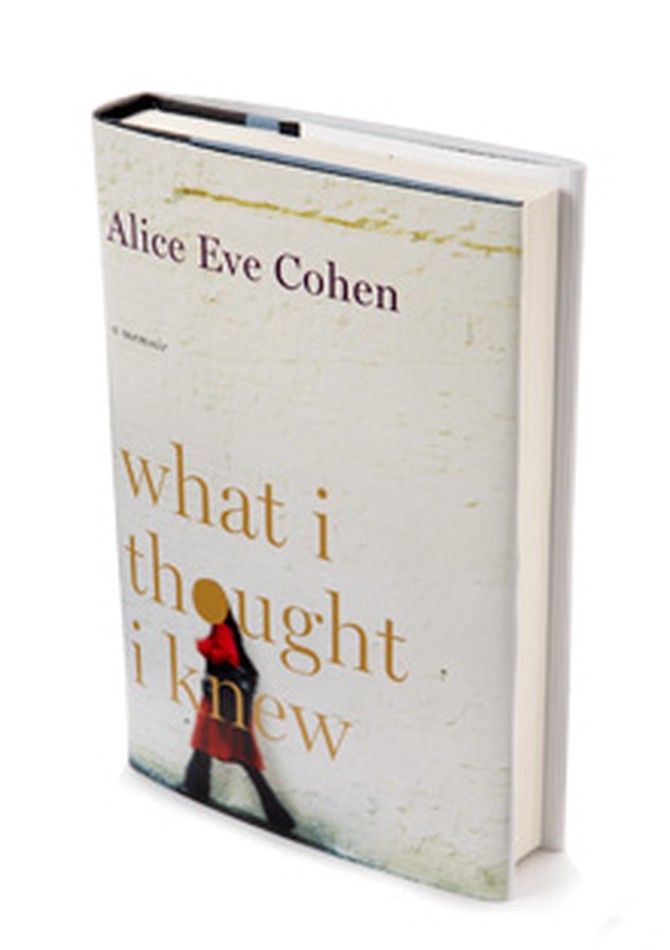
What I Thought I Knew by Alice Eve Cohen
208 pages; Viking
Solo theater artist Alice Eve Cohen knew that childbearing was simply impossible—her own mother had taken DES, and Alice had a deformed uterus, among other disqualifiers. So when what doctors misdiagnosed as a tumor turned out to be a 6-month fetus, the 44-year-old Cohen had to wrestle with clueless specialists, cavalier insurance companies, and her own no-see-um maternal instincts. Her darkly hilarious memoir, What I Thought I Knew (Viking), is an unexpected bundle of joy.
First chapter: Read an excerpt from What I Thought I Knew
Watch: Alice Eve Cohen performs a selection from the book
Solo theater artist Alice Eve Cohen knew that childbearing was simply impossible—her own mother had taken DES, and Alice had a deformed uterus, among other disqualifiers. So when what doctors misdiagnosed as a tumor turned out to be a 6-month fetus, the 44-year-old Cohen had to wrestle with clueless specialists, cavalier insurance companies, and her own no-see-um maternal instincts. Her darkly hilarious memoir, What I Thought I Knew (Viking), is an unexpected bundle of joy.
First chapter: Read an excerpt from What I Thought I Knew
Watch: Alice Eve Cohen performs a selection from the book
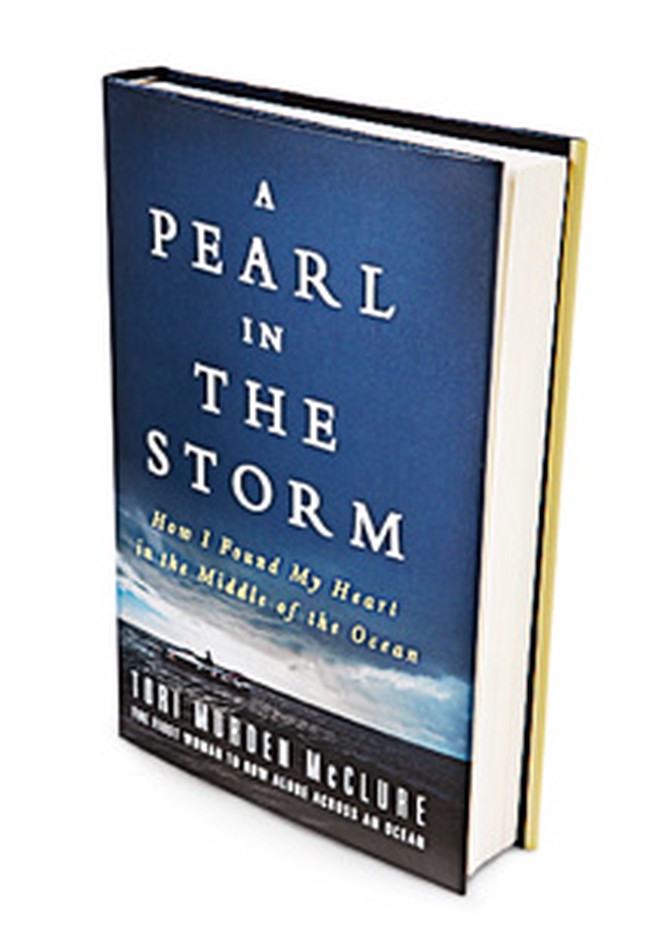
A Pearl in the Storm by Tori Murden McClure
304 pages; Collins
Maybe it was the snacks: Who wouldn't row alone across an ocean for the chance to eat like a teenager? Whatever it was that propelled Tori Murden McClure to the far side of the Atlantic in her homemade barge, the American Pearl, she muscled through 12-hour days of rowing, capsizing (she rescued the M&M's), being eyeballed by a hammerhead shark and clobbered by a hurricane. In A Pearl in the Storm (Collins), McClure tells how, on land and sea, she exuberantly bucked the tide.
First chapter: Read an excerpt from A Pearl in the Storm
Reader's Guide: Get discussion questions for your book club
Maybe it was the snacks: Who wouldn't row alone across an ocean for the chance to eat like a teenager? Whatever it was that propelled Tori Murden McClure to the far side of the Atlantic in her homemade barge, the American Pearl, she muscled through 12-hour days of rowing, capsizing (she rescued the M&M's), being eyeballed by a hammerhead shark and clobbered by a hurricane. In A Pearl in the Storm (Collins), McClure tells how, on land and sea, she exuberantly bucked the tide.
First chapter: Read an excerpt from A Pearl in the Storm
Reader's Guide: Get discussion questions for your book club
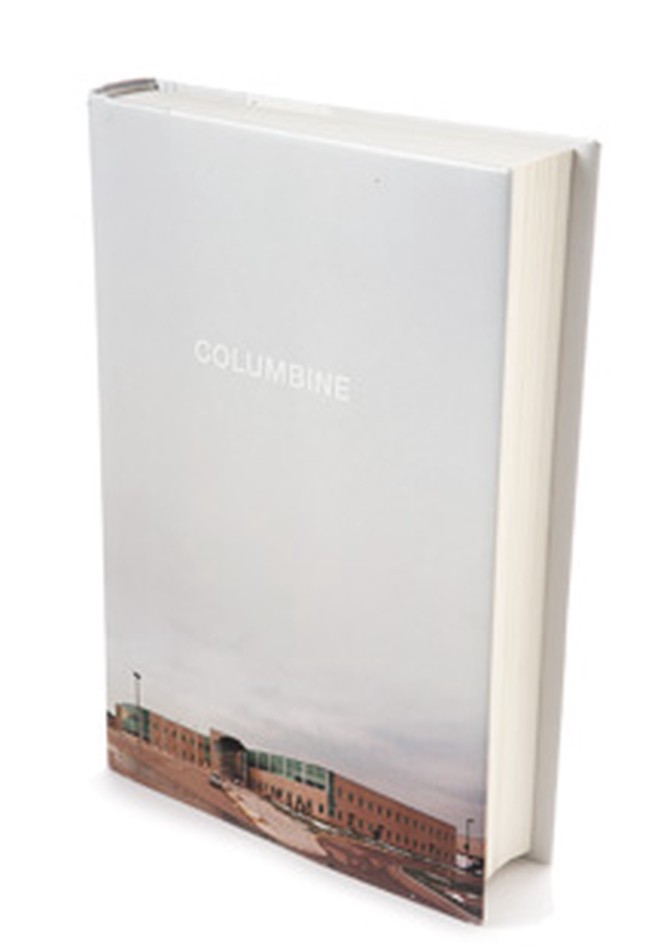
Columbine by Dave Cullen
432 pages; Twelve
You may want to leave the horror behind you—that may be why you haven't yet picked up Columbine (Twelve), journalist Dave Cullen's spectacularly gripping account of the Colorado school shooting that shocked America a decade ago. But Cullen's chilling narrative is too vital to miss, as are his myth-busting revelations: No, the killers were not social outcasts; there was no broader conspiracy; and, yes, the authorities should have known. Read this book for its unflinching honesty, and for the satisfaction, however grim, of setting the record straight.
First chapter: Read an excerpt from Columbine
Reader's Guide: Get discussion questions for your book club
You may want to leave the horror behind you—that may be why you haven't yet picked up Columbine (Twelve), journalist Dave Cullen's spectacularly gripping account of the Colorado school shooting that shocked America a decade ago. But Cullen's chilling narrative is too vital to miss, as are his myth-busting revelations: No, the killers were not social outcasts; there was no broader conspiracy; and, yes, the authorities should have known. Read this book for its unflinching honesty, and for the satisfaction, however grim, of setting the record straight.
First chapter: Read an excerpt from Columbine
Reader's Guide: Get discussion questions for your book club
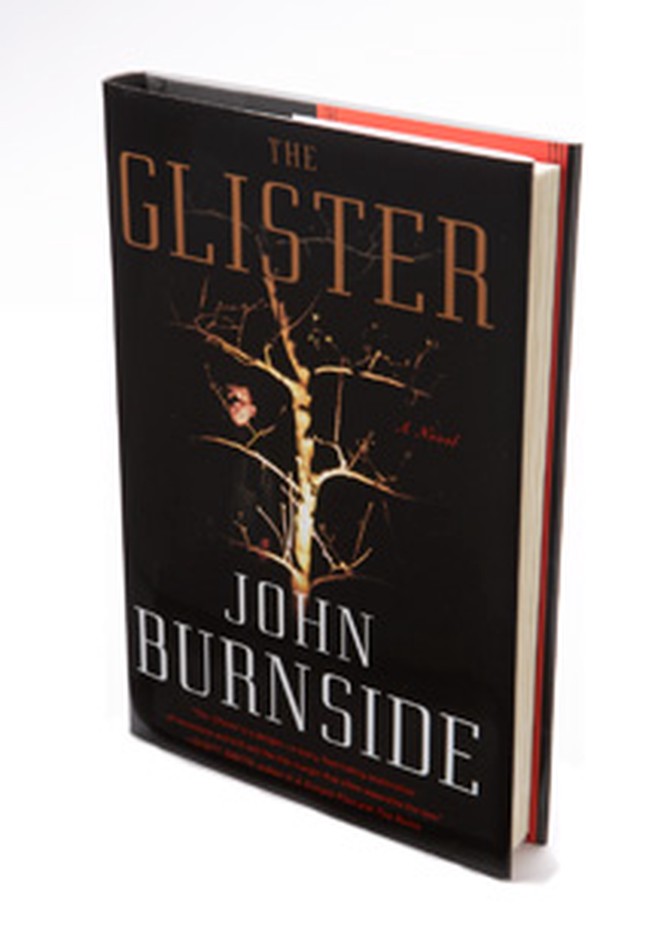
The Glister by John Burnside
240 pages; Nan A. Talese/Doubleday
A chemically poisoned town, young boys who vanish one by one into the sinister woods, a deadly sin of omission. "Mistakes don't happen in a single moment," writes Scottish poet and novelist John Burnside in The Glister (Nan A. Talese/Doubleday). "They grow invisibly beneath the surface, running for years in the dark like the roots of some patient fungus till something erupts at the surface, some slick, wet fruiting body full of dark spores that stream out into the wind...tainting everything they touch." A dark morality tale, hauntingly told.
First chapter: Read an excerpt from The Glister
Reader's Guide: Get discussion questions for your book club
A chemically poisoned town, young boys who vanish one by one into the sinister woods, a deadly sin of omission. "Mistakes don't happen in a single moment," writes Scottish poet and novelist John Burnside in The Glister (Nan A. Talese/Doubleday). "They grow invisibly beneath the surface, running for years in the dark like the roots of some patient fungus till something erupts at the surface, some slick, wet fruiting body full of dark spores that stream out into the wind...tainting everything they touch." A dark morality tale, hauntingly told.
First chapter: Read an excerpt from The Glister
Reader's Guide: Get discussion questions for your book club
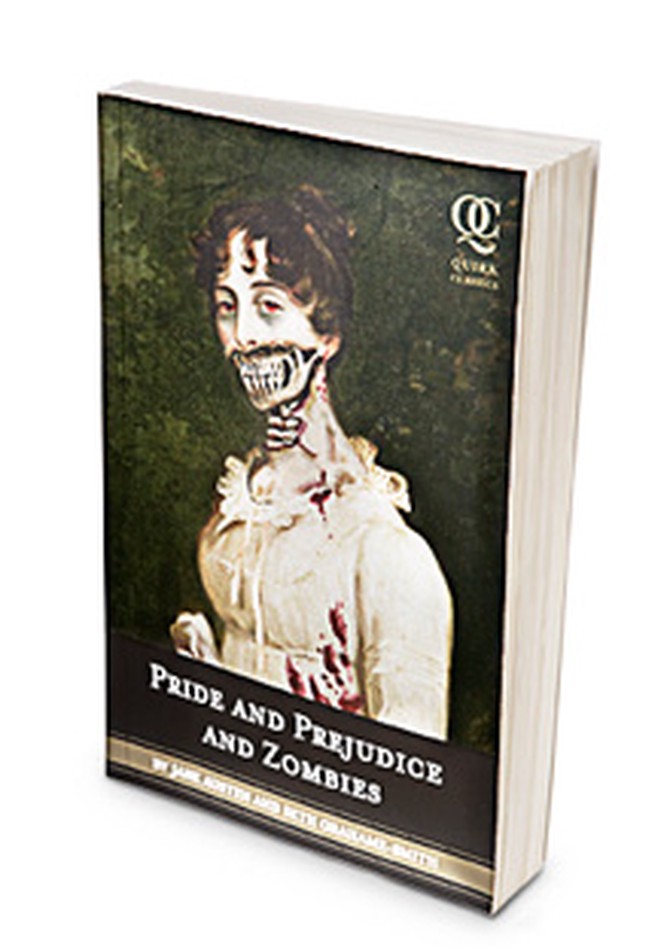
Pride and Prejudice and Zombies by Jane Austen and Seth Grahame-Smith
320 pages; Quirk Classics
Jane Austen might turn in her grave—or possibly rise from it—on reading Pride and Prejudice and Zombies (Quirk Classics), a merry monstrosity devised from Austen's own iconic text, with tweaks and additions by Seth Grahame-Smith; e.g., "It is a truth universally acknowledged that a zombie in possession of brains must be in want of more brains." Elizabeth Bennet, whose rapier wit is matched only by her swordplay, takes on the arrogant Mr. Darcy as well as the insatiable undead. You go, ghoul.
First chapter: Read an excerpt from Pride and Prejudice and Zombies
Sneak peek: See illustrations from the book
Reader's Guide: Get discussion questions for your book club
Jane Austen might turn in her grave—or possibly rise from it—on reading Pride and Prejudice and Zombies (Quirk Classics), a merry monstrosity devised from Austen's own iconic text, with tweaks and additions by Seth Grahame-Smith; e.g., "It is a truth universally acknowledged that a zombie in possession of brains must be in want of more brains." Elizabeth Bennet, whose rapier wit is matched only by her swordplay, takes on the arrogant Mr. Darcy as well as the insatiable undead. You go, ghoul.
First chapter: Read an excerpt from Pride and Prejudice and Zombies
Sneak peek: See illustrations from the book
Reader's Guide: Get discussion questions for your book club
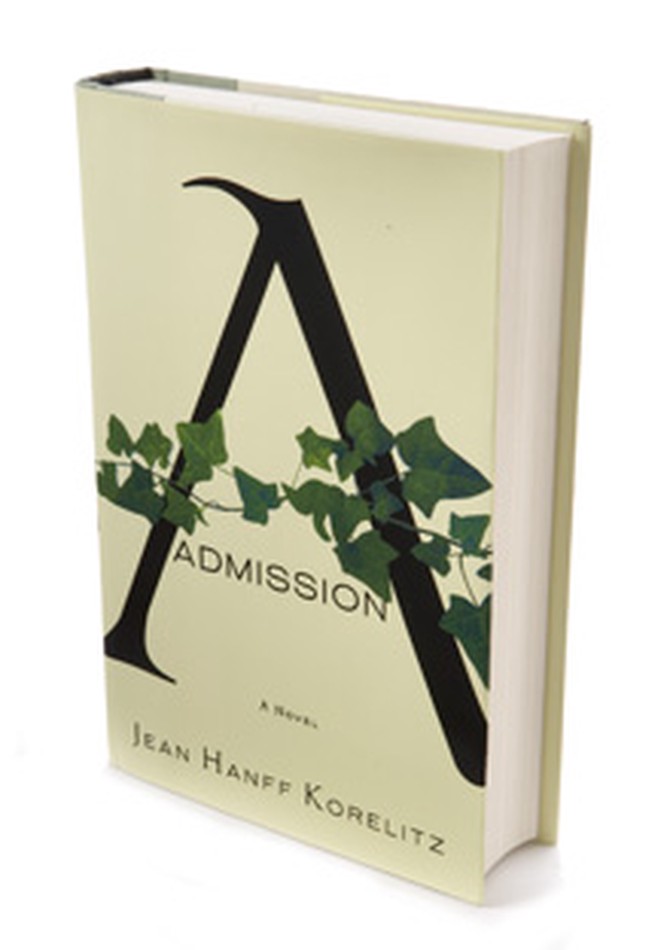
Admission by Jean Hanff Korelitz
464 pages; Grand Central
How does it work, anyway—that top-secret, convoluted college admissions process that turns high school students and their parents into frantic, wheedling, groveling, soul-searching desperadoes? Reading Jean Hanff Korelitz's novel Admission (Grand Central), about Portia Nathan, a soft-hearted scout for Princeton, and her fateful decisions—academic and otherwise—is like sneaking into the ivy tower and pressing your ear to the wall. An intimate tale of skewed dreams and diverted lives.
First chapter: Read an excerpt from Admission
How does it work, anyway—that top-secret, convoluted college admissions process that turns high school students and their parents into frantic, wheedling, groveling, soul-searching desperadoes? Reading Jean Hanff Korelitz's novel Admission (Grand Central), about Portia Nathan, a soft-hearted scout for Princeton, and her fateful decisions—academic and otherwise—is like sneaking into the ivy tower and pressing your ear to the wall. An intimate tale of skewed dreams and diverted lives.
First chapter: Read an excerpt from Admission
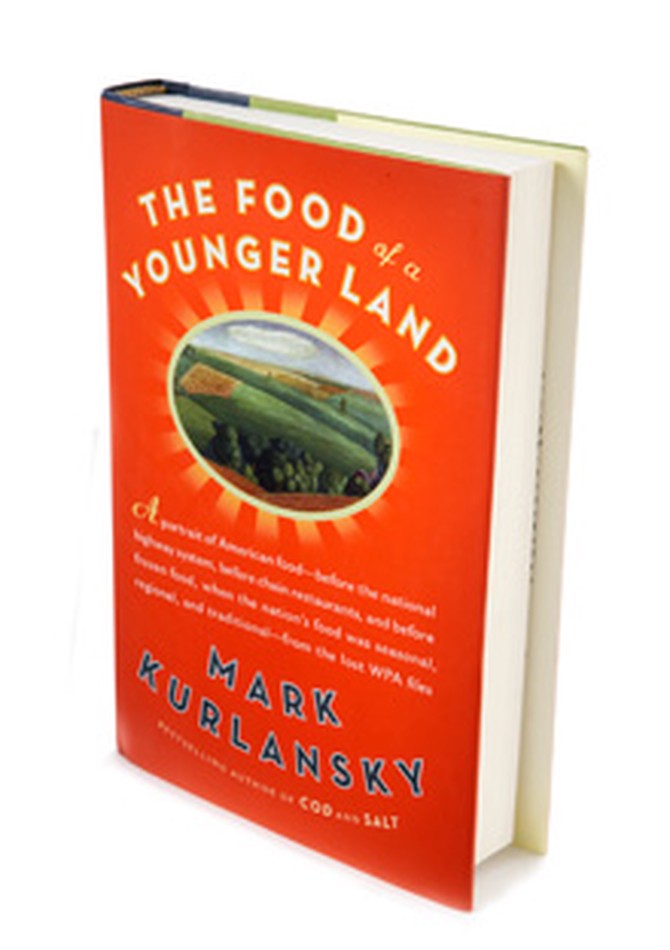
The Food of a Younger Land by Mark Kurlansky
416 pages; Riverhead
The Food of a Younger Land (Riverhead), edited and illustrated with woodcuts by Mark Kurlansky, is a banquet of stories and traditional recipes collected in the 1930s for the Federal Writers' Project by the likes of Eudora Welty and Nelson Algren, who journeyed across the land to sniff out what and how Americans ate. Indiana Persimmon Pudding, Depression Cake from the Far West—savory concoctions for a hungry time.
First chapter: Read an excerpt from The Food of a Younger Land
The Food of a Younger Land (Riverhead), edited and illustrated with woodcuts by Mark Kurlansky, is a banquet of stories and traditional recipes collected in the 1930s for the Federal Writers' Project by the likes of Eudora Welty and Nelson Algren, who journeyed across the land to sniff out what and how Americans ate. Indiana Persimmon Pudding, Depression Cake from the Far West—savory concoctions for a hungry time.
First chapter: Read an excerpt from The Food of a Younger Land
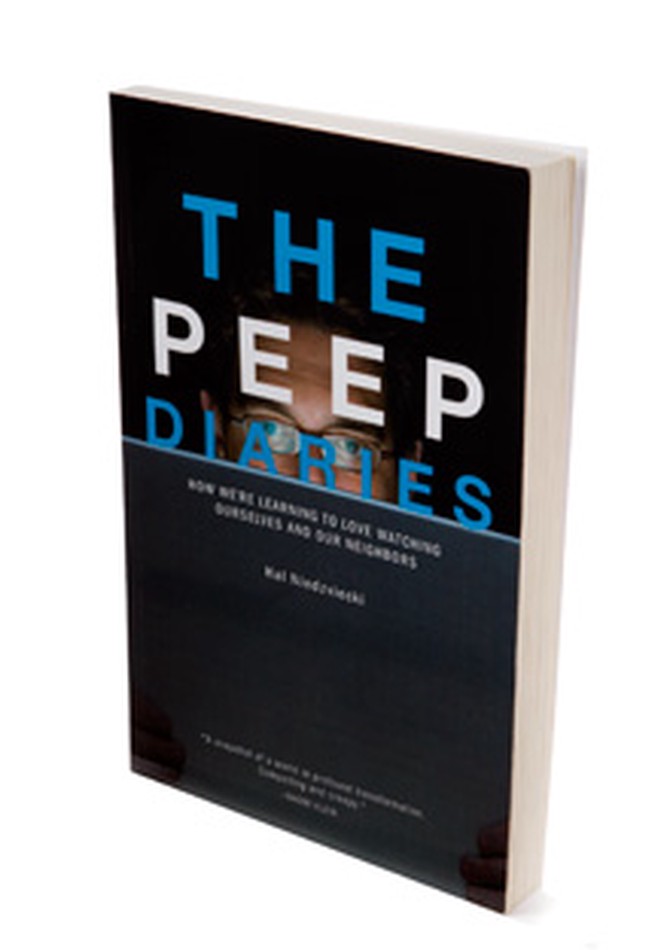
The Peep Diaries by Hal Niedzviecki
256 pages; City Lights
"You need to know. You need to be known." That is the compulsion fueling what cultural critic Hal Niedzviecki calls "peep culture, the bastard love child of gossip"—our mass addiction to twittering, tweeting, snooping, spying, blogging, gawking at reality TV and YouTube, spilling our secrets on Facebook, MySpace, Bebo, Ping...the list goes on. "Call it surveillance with benefits," he writes of our consuming need for human connection in The Peep Diaries (City Lights), a virtual descent into the loneliest of worlds.
First chapter: Read an excerpt from The Peep Diaries
Reader's Guide: Get discussion questions for your book club
"You need to know. You need to be known." That is the compulsion fueling what cultural critic Hal Niedzviecki calls "peep culture, the bastard love child of gossip"—our mass addiction to twittering, tweeting, snooping, spying, blogging, gawking at reality TV and YouTube, spilling our secrets on Facebook, MySpace, Bebo, Ping...the list goes on. "Call it surveillance with benefits," he writes of our consuming need for human connection in The Peep Diaries (City Lights), a virtual descent into the loneliest of worlds.
First chapter: Read an excerpt from The Peep Diaries
Reader's Guide: Get discussion questions for your book club
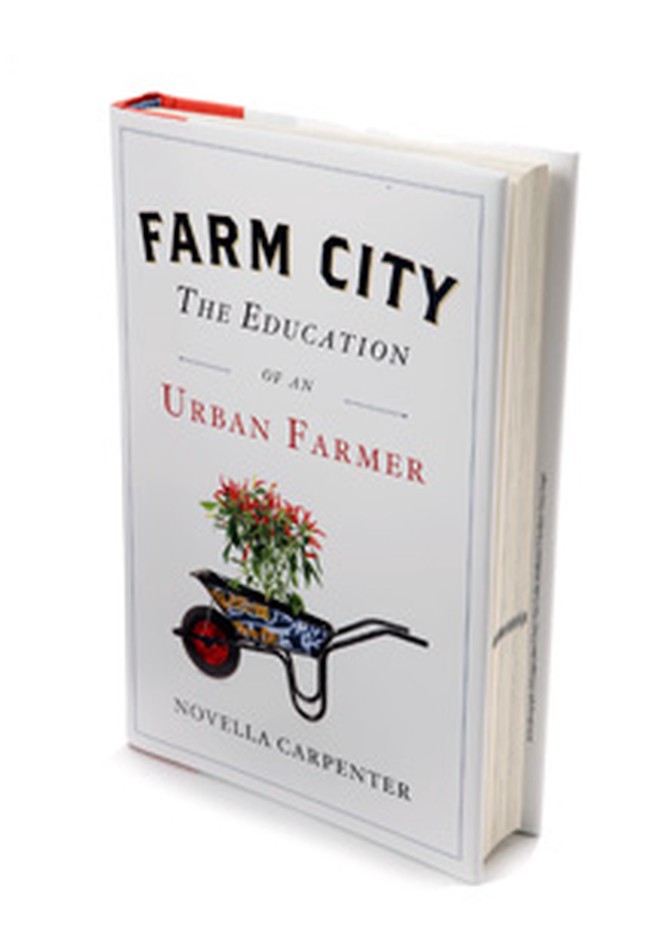
Farm City by Novella Carpenter
288 pages; Penguin
Marie Antoinette wore potato blossoms in her hair. Novella Carpenter, on the other hand, finds herself up to her neck in gizzards and sizzling compost. Farm City (Penguin) is Carpenter's delectable story of how she turned a "ghetto squat lot" in Oakland, California, into a working urban farm. Making cameo appearances here: a flashy neighbor called Lana (that's "anal" spelled backward, the woman helpfully explains), a pair of turkeys named Harold and Maude, lettuce-loving Black Panthers, and some engaging future bacon.
Marie Antoinette wore potato blossoms in her hair. Novella Carpenter, on the other hand, finds herself up to her neck in gizzards and sizzling compost. Farm City (Penguin) is Carpenter's delectable story of how she turned a "ghetto squat lot" in Oakland, California, into a working urban farm. Making cameo appearances here: a flashy neighbor called Lana (that's "anal" spelled backward, the woman helpfully explains), a pair of turkeys named Harold and Maude, lettuce-loving Black Panthers, and some engaging future bacon.
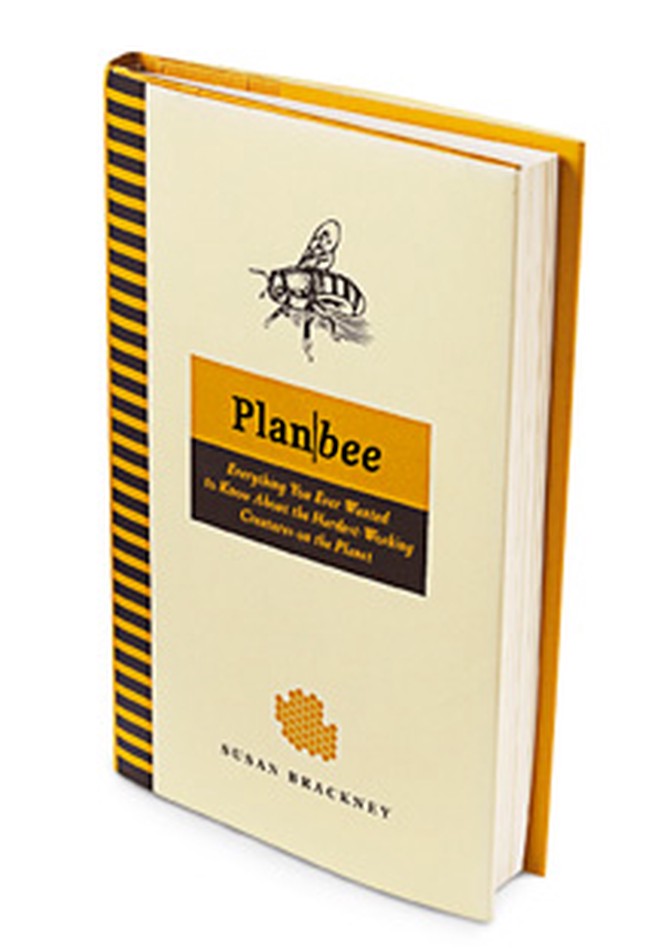
Plan Bee by Susan Brackney
208 pages; Perigee
"It takes more than stripes to make a honeybee, honey." Beekeeper Susan Brackney's Plan Bee (Perigee) is a close encounter with a high-functioning (and endangered) society that is essential to our own—a delightful primer on old queens, mellow Italians (of the apian kind), venomless drones, and other hive dwellers whose lives may be short, but oh so sweet.
"It takes more than stripes to make a honeybee, honey." Beekeeper Susan Brackney's Plan Bee (Perigee) is a close encounter with a high-functioning (and endangered) society that is essential to our own—a delightful primer on old queens, mellow Italians (of the apian kind), venomless drones, and other hive dwellers whose lives may be short, but oh so sweet.
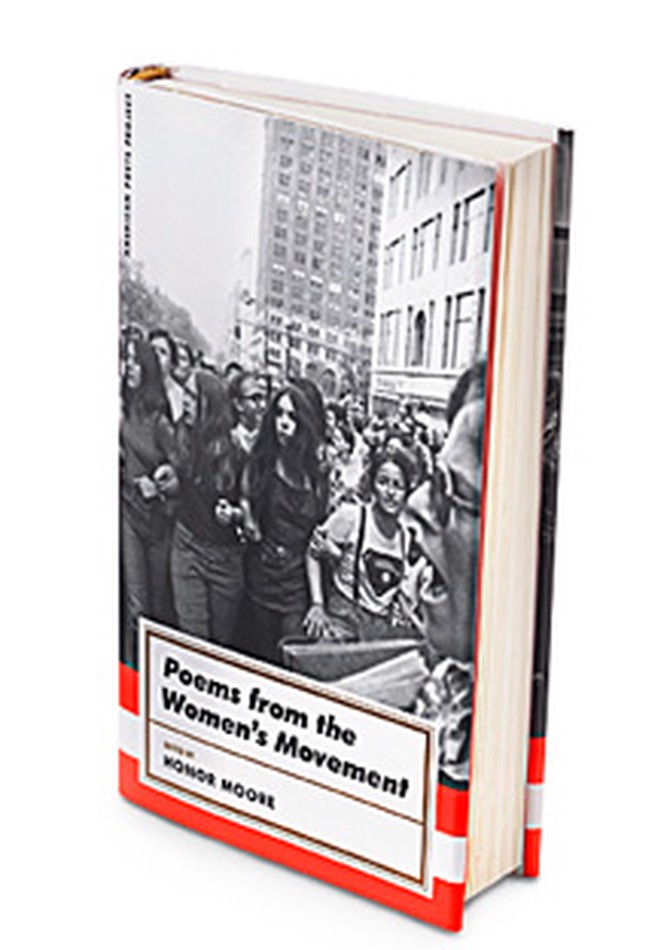
Poems from the Women's Movement by Honor Moore
200 pages; The Library of America
Beginning in the 1960s, poets like Sylvia Plath, Adrienne Rich, Diane Di Prima, and Sonia Sanchez began coming out—from the closet and the kitchen and the bedroom—to read and write about how they lived. For women, wrote Audre Lorde, "poetry is not a luxury" but a necessary way of dealing with gender, power, and race, sometimes with fury, sometimes with expansive joy. Below, from Honor Moore's rich anthology, Poems from the Women's Movement (The Library of America), a slice of life by Elsa Gidlow.
Beginning in the 1960s, poets like Sylvia Plath, Adrienne Rich, Diane Di Prima, and Sonia Sanchez began coming out—from the closet and the kitchen and the bedroom—to read and write about how they lived. For women, wrote Audre Lorde, "poetry is not a luxury" but a necessary way of dealing with gender, power, and race, sometimes with fury, sometimes with expansive joy. Below, from Honor Moore's rich anthology, Poems from the Women's Movement (The Library of America), a slice of life by Elsa Gidlow.
You say I am mysterious
Let me explain myself:
In a land of oranges
I am faithful to apples
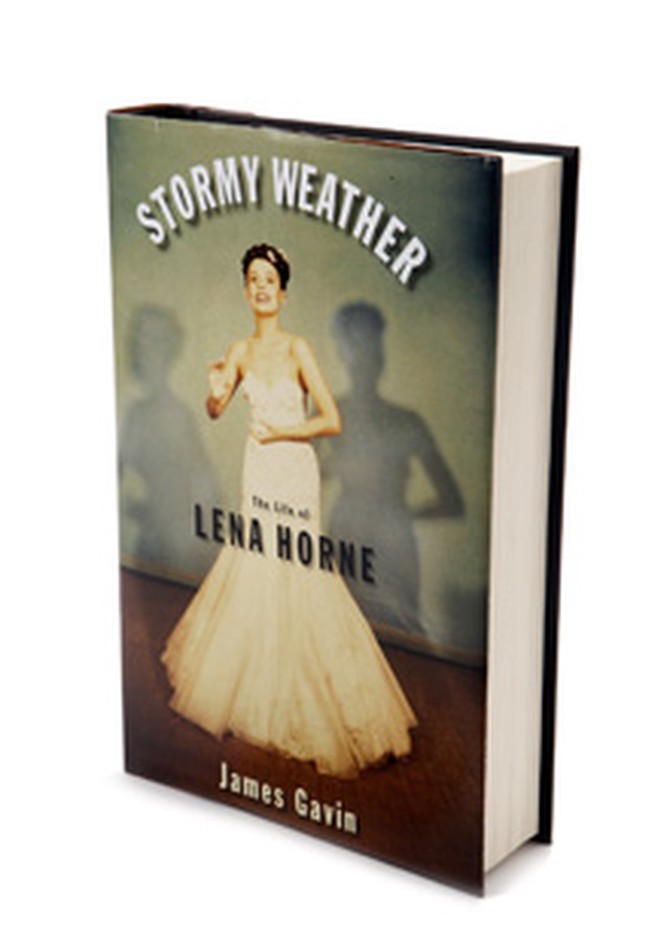
Stormy Weather by James Gavin
608 pages; Atria
People told her she wasn't "colored enough." (Ethel Waters, among others, despised her.) They said she had no sense of rhythm, couldn't sing the blues. But Lena Horne's patrician beauty dazzled white audiences, and in the 1940s, her sexy, stylish cabaret and film performances made her a star. James Gavin's Stormy Weather (Atria) tells how this elegant icon—polite to a fault, quietly enraged by Hollywood racism—spent decades getting comfortable in her skin.
People told her she wasn't "colored enough." (Ethel Waters, among others, despised her.) They said she had no sense of rhythm, couldn't sing the blues. But Lena Horne's patrician beauty dazzled white audiences, and in the 1940s, her sexy, stylish cabaret and film performances made her a star. James Gavin's Stormy Weather (Atria) tells how this elegant icon—polite to a fault, quietly enraged by Hollywood racism—spent decades getting comfortable in her skin.

Eye of My Heart edited by Barbara Graham
320 pages; Harper
Among the doting, self-doubting grandmothers in editor Barbara Graham's spry and unsentimental anthology Eye of My Heart (Harper) are Abigail Thomas, who relishes her late-life indolence, and Molly Giles, who watches her spoiled-rotten granddaughter with a mixture of irritation and awe ("Annika at three knows what she likes and doesn't like, and she doesn't like me"). Truth-telling with dollops of love.
Excerpt: Read an exclusive essay from Eye of My Heart
Among the doting, self-doubting grandmothers in editor Barbara Graham's spry and unsentimental anthology Eye of My Heart (Harper) are Abigail Thomas, who relishes her late-life indolence, and Molly Giles, who watches her spoiled-rotten granddaughter with a mixture of irritation and awe ("Annika at three knows what she likes and doesn't like, and she doesn't like me"). Truth-telling with dollops of love.
Excerpt: Read an exclusive essay from Eye of My Heart
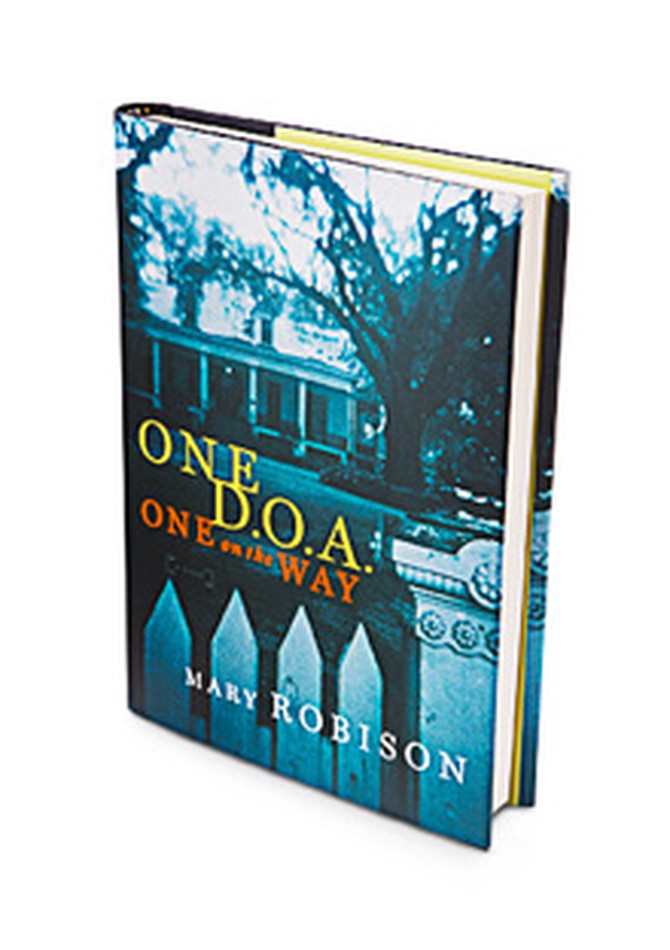
One D.O.A., One on the Way by Mary Robison
176 pages; Counterpoint
Eve is a movie location scout in post-Katrina New Orleans. The city is in ruins, and so is her marriage to the invalid Adam, whose alcoholic twin brother and his unbalanced wife mirror the chaos, desperation, violence, and inchoate need of this blighted paradise. A lighthearted summer romance? Hardly. But Mary Robison's telegraphic sentences and blunt-cut dialogue make her latest novel, One D.O.A., One on the Way (Counterpoint), a riveting read.
Eve is a movie location scout in post-Katrina New Orleans. The city is in ruins, and so is her marriage to the invalid Adam, whose alcoholic twin brother and his unbalanced wife mirror the chaos, desperation, violence, and inchoate need of this blighted paradise. A lighthearted summer romance? Hardly. But Mary Robison's telegraphic sentences and blunt-cut dialogue make her latest novel, One D.O.A., One on the Way (Counterpoint), a riveting read.
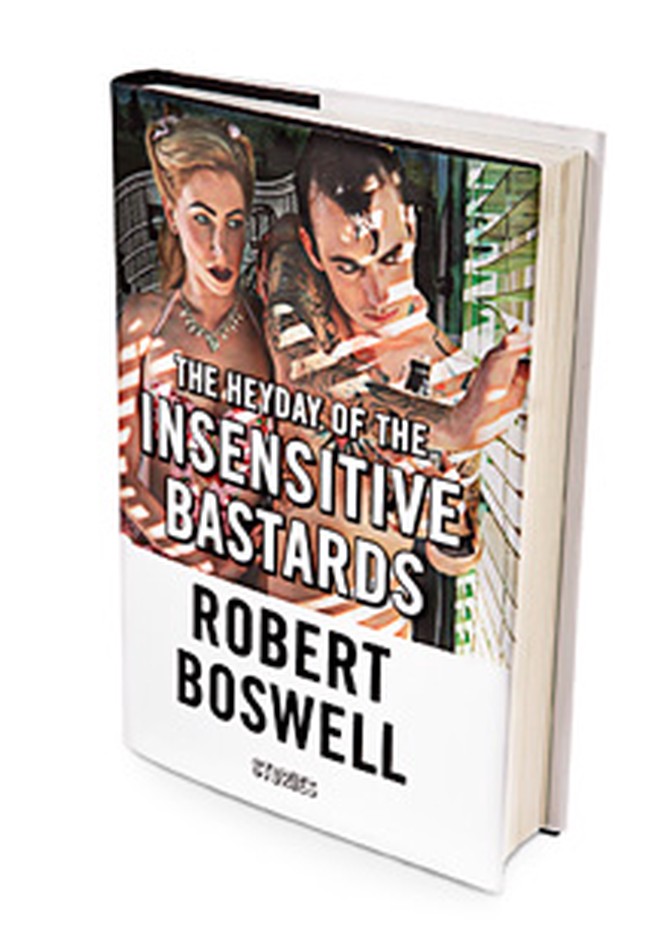
The Heyday of the Insensitive Bastards by Robert Boswell
288 pages; Graywolf
Robert Boswell's stories are packed with latent emotion, like explosives about to detonate. In The Heyday of the Insensitive Bastards (Graywolf), characters move through life with trepidation, as relationships fracture and past collides with present. "Time is not a river," thinks one traumatized young man. "Time is a tree. Branches, roots, limbs, the leafing. Time defoliates. Time buds. Time cracks." An unnerving, fascinating collection.
Robert Boswell's stories are packed with latent emotion, like explosives about to detonate. In The Heyday of the Insensitive Bastards (Graywolf), characters move through life with trepidation, as relationships fracture and past collides with present. "Time is not a river," thinks one traumatized young man. "Time is a tree. Branches, roots, limbs, the leafing. Time defoliates. Time buds. Time cracks." An unnerving, fascinating collection.
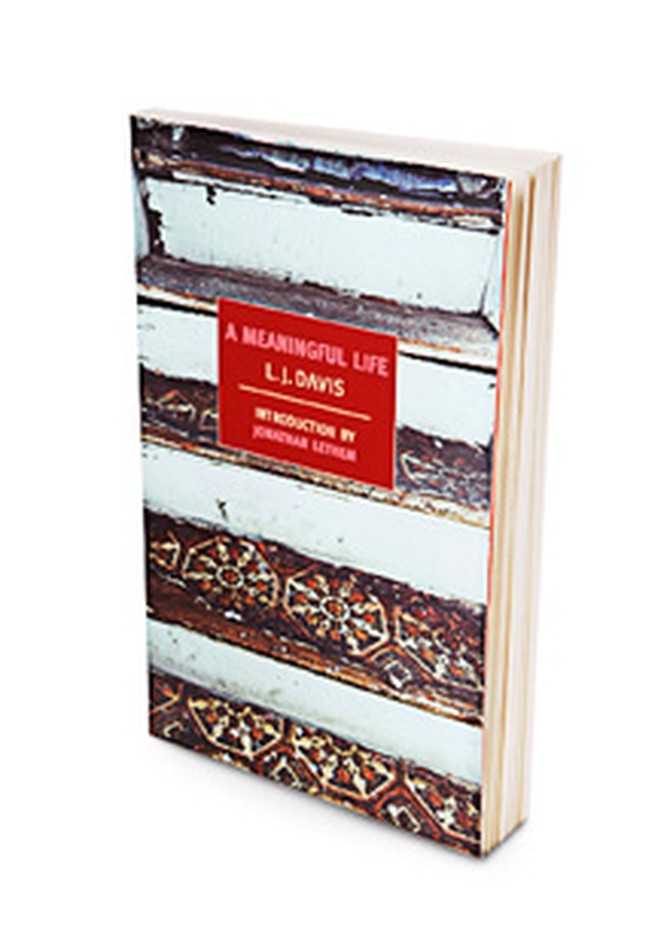
A Meaningful Life by L.J. Davis
232 pages; NYRB Classics
Stultified by his job (editing a plumbing magazine) and his mind-numbing marriage ("a cross between Long Day's Journey into Night and Father Knows Best"), frustrated novelist Lowell Lake welcomes a new obsession: renovating a monstrously dilapidated mansion in a Brooklyn slum. What follows, in L.J. Davis's deadpan 1971 novel A Meaningful Life, reissued by NYRB Classics, is pure chaos, as Lowell confronts a cast of urban squatters, in some of the most brilliant comic turns this side of Alice in Wonderland. A cathartic read for urban pioneers.
Stultified by his job (editing a plumbing magazine) and his mind-numbing marriage ("a cross between Long Day's Journey into Night and Father Knows Best"), frustrated novelist Lowell Lake welcomes a new obsession: renovating a monstrously dilapidated mansion in a Brooklyn slum. What follows, in L.J. Davis's deadpan 1971 novel A Meaningful Life, reissued by NYRB Classics, is pure chaos, as Lowell confronts a cast of urban squatters, in some of the most brilliant comic turns this side of Alice in Wonderland. A cathartic read for urban pioneers.
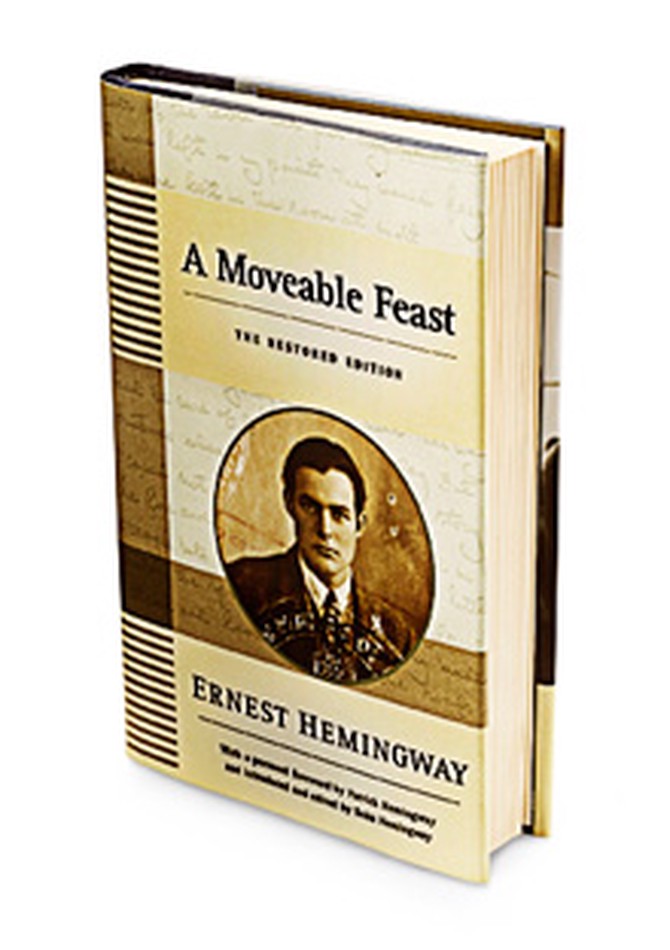
A Moveable Feast by Ernest Hemingway
256 pages; Scribner
For its musings on creativity ("Write one true sentence, and then go on from there") and for its heady Parisian ambience, for its poison darts of gossip and vignettes about literary lions from Gertrude Stein to F. Scott Fitzgerald, read the latest incarnation of Ernest Hemingway's A Moveable Feast (Scribner), first published in 1964. His widow, Mary, oversaw the heavily edited original; this one, edited by grandson Seán, takes Hemingway at his word and restores his original manuscript—less a finished book than a trove of sketches, some unfinished, just as the master left them.
Introduction: Read an excerpt from A Moveable Feast
For its musings on creativity ("Write one true sentence, and then go on from there") and for its heady Parisian ambience, for its poison darts of gossip and vignettes about literary lions from Gertrude Stein to F. Scott Fitzgerald, read the latest incarnation of Ernest Hemingway's A Moveable Feast (Scribner), first published in 1964. His widow, Mary, oversaw the heavily edited original; this one, edited by grandson Seán, takes Hemingway at his word and restores his original manuscript—less a finished book than a trove of sketches, some unfinished, just as the master left them.
Introduction: Read an excerpt from A Moveable Feast
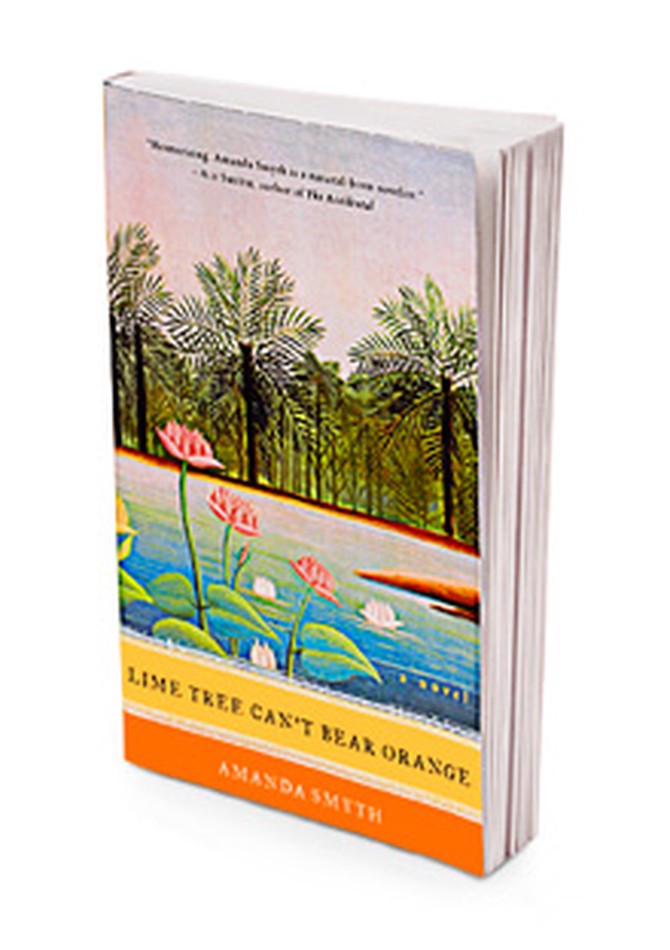
Lime Tree Can't Bear Orange by Amanda Smyth
256 pages; Shay Areheart
The death of innocence is like catnip to fiction writers, and Amanda Smyth pounces on it with all four paws in her debut novel, Lime Tree Can't Bear Orange (Shaye Areheart). The Irish-Trinidadian Smyth sets the scene in steamy Tobago, where lovely, parentless Celia lives with her Aunt Tassi and her aunt's husband, Roman, a man who "could crawl under a snake's belly on stilts." It doesn't take a soothsayer (though one happens to be handy) to predict this adolescent's perilous and passionate coming of age.
First chapter: Read an excerpt from Lime Tree Can't Bear Orange
Reader's Guide: Get discussion questions for your book club
The death of innocence is like catnip to fiction writers, and Amanda Smyth pounces on it with all four paws in her debut novel, Lime Tree Can't Bear Orange (Shaye Areheart). The Irish-Trinidadian Smyth sets the scene in steamy Tobago, where lovely, parentless Celia lives with her Aunt Tassi and her aunt's husband, Roman, a man who "could crawl under a snake's belly on stilts." It doesn't take a soothsayer (though one happens to be handy) to predict this adolescent's perilous and passionate coming of age.
First chapter: Read an excerpt from Lime Tree Can't Bear Orange
Reader's Guide: Get discussion questions for your book club
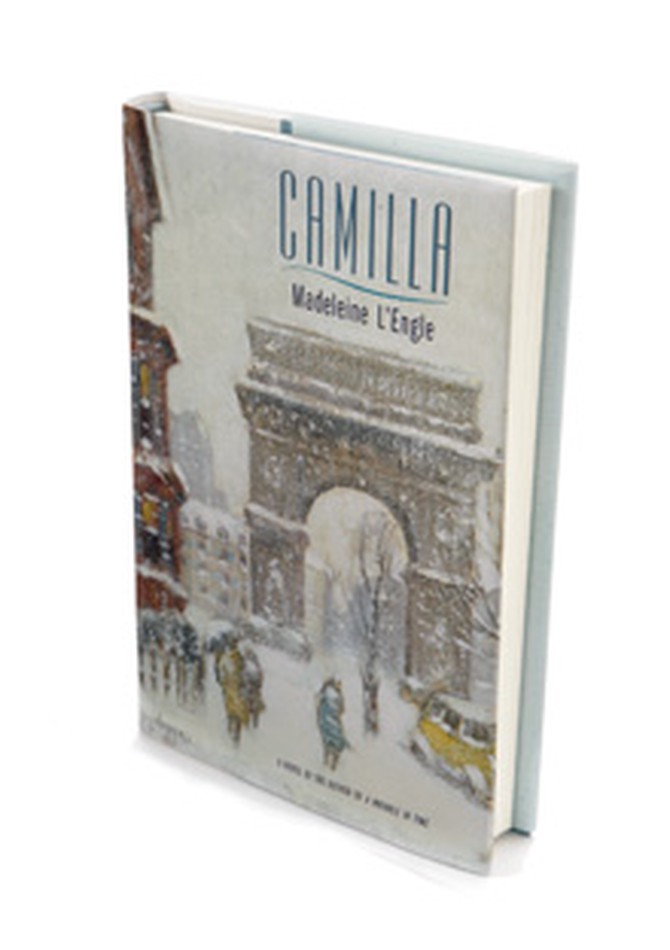
Camilla by Madeleine L'Engle
256 pages; Farrar, Straus and Giroux
No tropical heat for the lonely, sheltered heroine of Camilla, Madeleine L'Engle's 1951 novel of midcentury Manhattan, republished by Farrar, Straus and Giroux. Camilla's elegant mother, Rose, has an unctuous boyfriend who makes the teenager cringe and her father, Rafferty, seethe with rage. Struggling to make sense of all that conflict, walking the snowy city streets with a boy named Frank, Camilla tries to fathom the sweet, slow progress of desire.
First chapter: Read an excerpt from Camilla
No tropical heat for the lonely, sheltered heroine of Camilla, Madeleine L'Engle's 1951 novel of midcentury Manhattan, republished by Farrar, Straus and Giroux. Camilla's elegant mother, Rose, has an unctuous boyfriend who makes the teenager cringe and her father, Rafferty, seethe with rage. Struggling to make sense of all that conflict, walking the snowy city streets with a boy named Frank, Camilla tries to fathom the sweet, slow progress of desire.
First chapter: Read an excerpt from Camilla
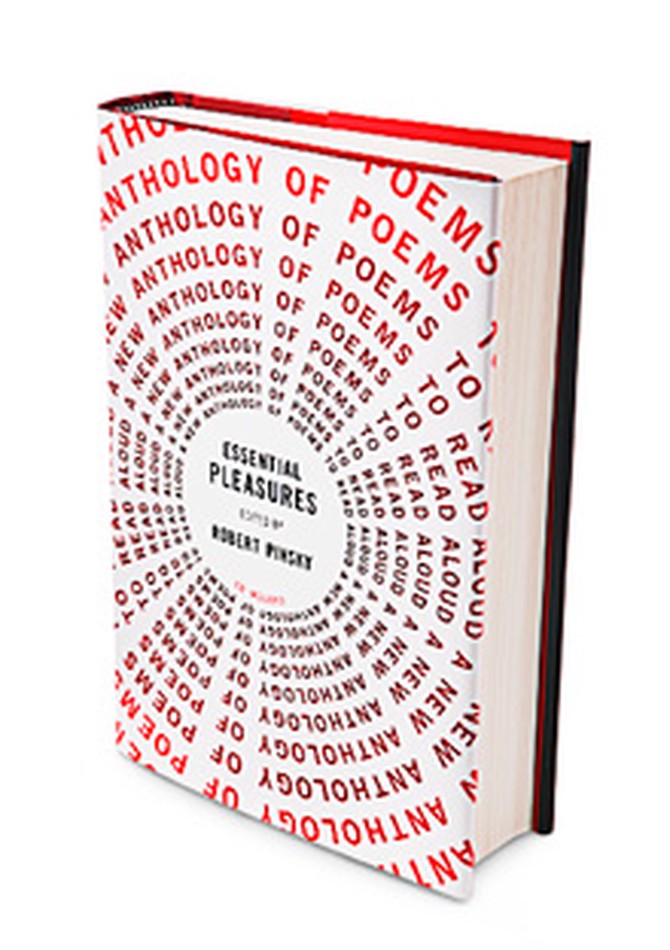
Essential Pleasures edited by Robert Pinsky
528 pages; Norton
They slink into your mouth like oysters, like full-bodied wine. When you read a poem aloud (recite is too formal a word), you curl your tongue around its luscious syllables—as with William Carlos Williams's "To Waken an Old Lady": "Old age is / a flight of small / cheeping birds / skimming / bare trees"; or Lucille Clifton's "Homage to My Hips": "these hips are big hips / they need space to / move around in." Essential Pleasures (Norton), edited by Robert Pinsky, is a cache of speakable poems, romantic and ridiculous, somber and sublime. Read one to someone you love.
They slink into your mouth like oysters, like full-bodied wine. When you read a poem aloud (recite is too formal a word), you curl your tongue around its luscious syllables—as with William Carlos Williams's "To Waken an Old Lady": "Old age is / a flight of small / cheeping birds / skimming / bare trees"; or Lucille Clifton's "Homage to My Hips": "these hips are big hips / they need space to / move around in." Essential Pleasures (Norton), edited by Robert Pinsky, is a cache of speakable poems, romantic and ridiculous, somber and sublime. Read one to someone you love.
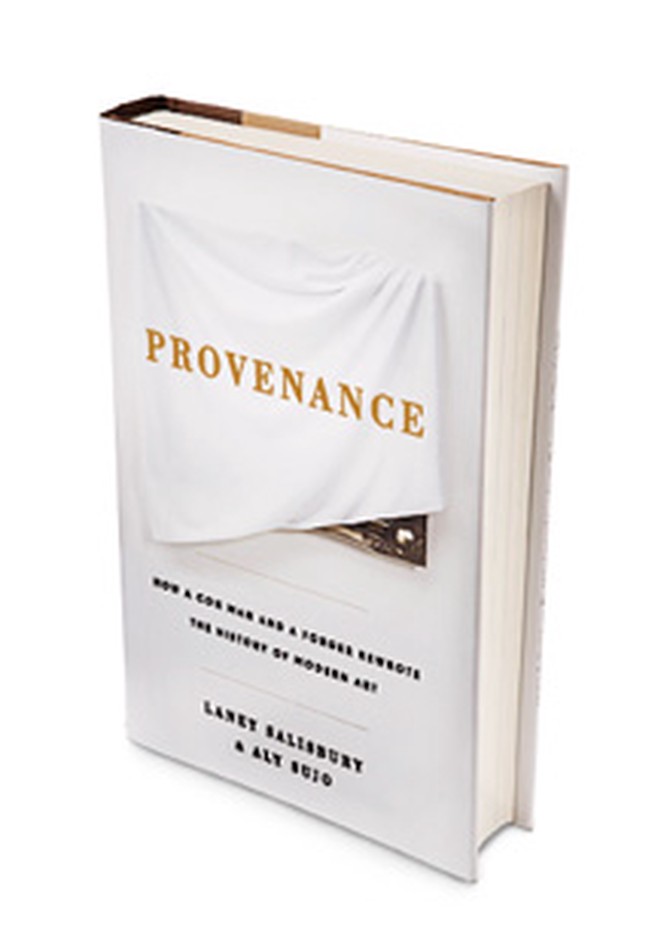
Provenance by Laney Salisbury and Aly Sujo
352 pages; Penguin
A dapper, fast-talking polymath with a talent for turning heads, John Drewe masterminded the most elaborate art hoax of the 20th century. Forging letters of authenticity, doctoring vintage exhibition catalogs, Drewe bamboozled art experts and revered institutions (including London's Tate Gallery) into accepting a slew of "masterpieces" presumably by Giacometti, Braque, Matisse but actually by gifted down-at-the-heels forger John Myatt. Investigative reporters Laney Salisbury and her husband, Aly Sujo, detail this spectacular scam in Provenance (Penguin), a real-life thriller about the fine art of the con.
First chapter: Read an excerpt from Provenance
More Summer Reading
Don't miss the next issue of O: Order now!
A dapper, fast-talking polymath with a talent for turning heads, John Drewe masterminded the most elaborate art hoax of the 20th century. Forging letters of authenticity, doctoring vintage exhibition catalogs, Drewe bamboozled art experts and revered institutions (including London's Tate Gallery) into accepting a slew of "masterpieces" presumably by Giacometti, Braque, Matisse but actually by gifted down-at-the-heels forger John Myatt. Investigative reporters Laney Salisbury and her husband, Aly Sujo, detail this spectacular scam in Provenance (Penguin), a real-life thriller about the fine art of the con.
First chapter: Read an excerpt from Provenance
More Summer Reading
Don't miss the next issue of O: Order now!
From the July 2009 issue of O, The Oprah Magazine

